Wizards and Co is an unusual game about timing and placement
With a well respected design team and a fantastic artist in Miguel Coimbra, Sinister Fish Games could be onto a winner with Wizards and Co. Hot on the heels of a string of great games including Villagers and Honk!, Wizards and Co retains a similarly fun aesthetic that probably plays down the complexity that lies beneath.
In Wizards and Co, players are the wizards who will use their minions and constructs to raid various dungeons, battle between themselves and “liberate” artifacts that can enhance their capabilities and score points. After a fixed number of dungeons have been raided and resolved (depending on the number of players) then the game will come to an end, and whoever has the most points will win.
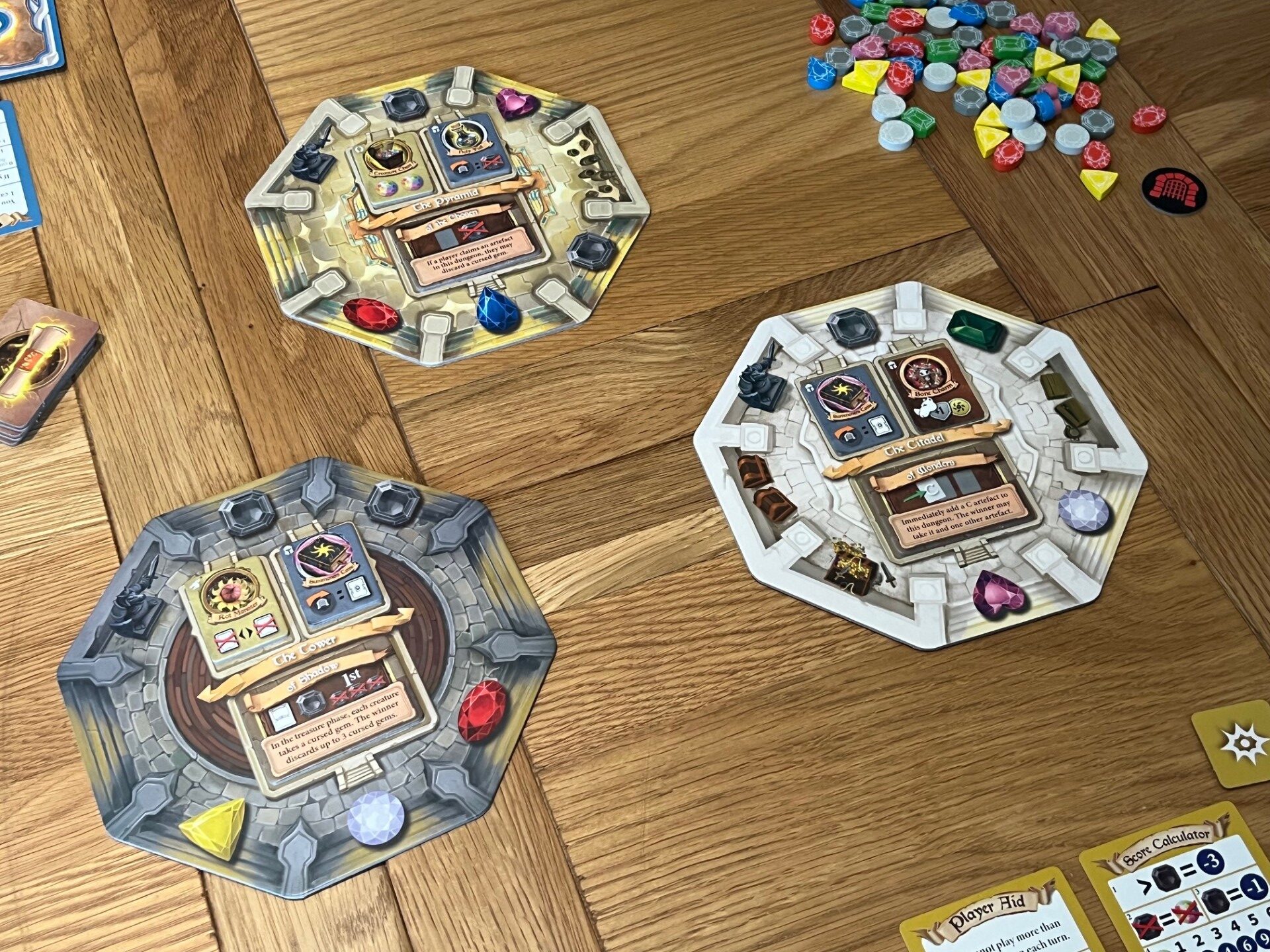
Before the game begins, players will first agree on a deck of cards that will be the same for every player. There’s a default setup of numbered cards, but some of these can be swapped out for lettered cards that add advanced tactics and additional variation for more experienced players. I guess it would also be possible to vary decks from one player to another, but this isn’t referenced as an “official” variant.
Dungeons are placed randomly, with one per player in the game. All dungeons in the game are double sided, with a random enchantment tile and two artifact tiles placed on each one. Enchantments vary the rules for each dungeon – perhaps making one creature type more powerful or allowing certain cards to benefit from some small bonus.
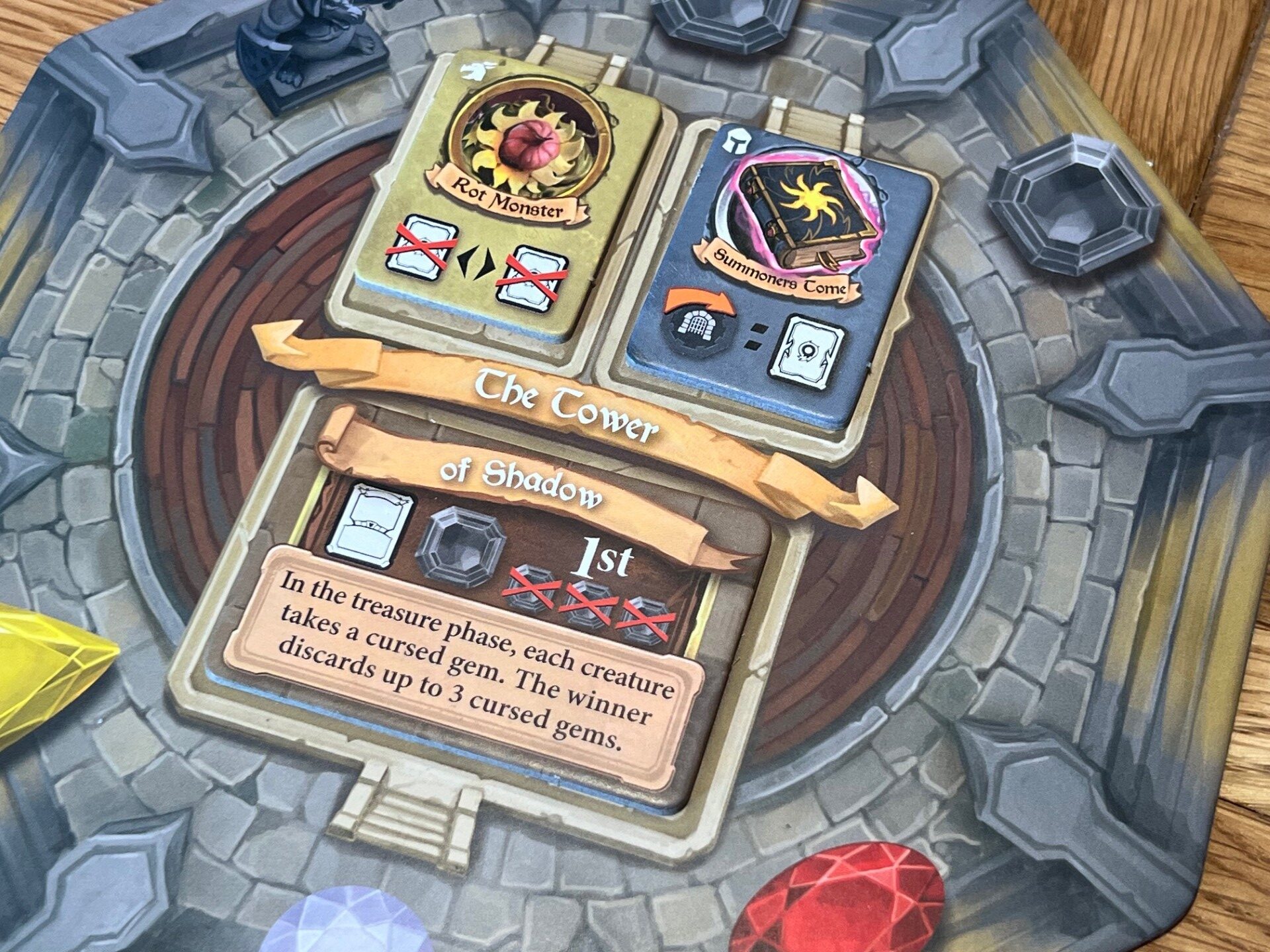
Every dungeon has a number of open spaces printed around the edge, and each of these will generally have a treasure printed on them. This may be a valuable jewel, or it could be a cursed gem. The latter of these are often placed on the “first” open spot in a dungeon going clockwise from the start, and this is a way to balance the game because as I’ll explain, resolving your card first can be massive.
So how does this happen? In turn order, the players are going to place none, one or sometimes two cards onto open spaces in one or two dungeons. Depending on how many cards are placed and whether face up or face down, that will determine how many cards they draw at the end of their turn. Placing cards face down is more powerful as other players don’t know what they will do, and as such, you can only ever play one card face down (so if you play a second card in the same turn, one must always be face up).
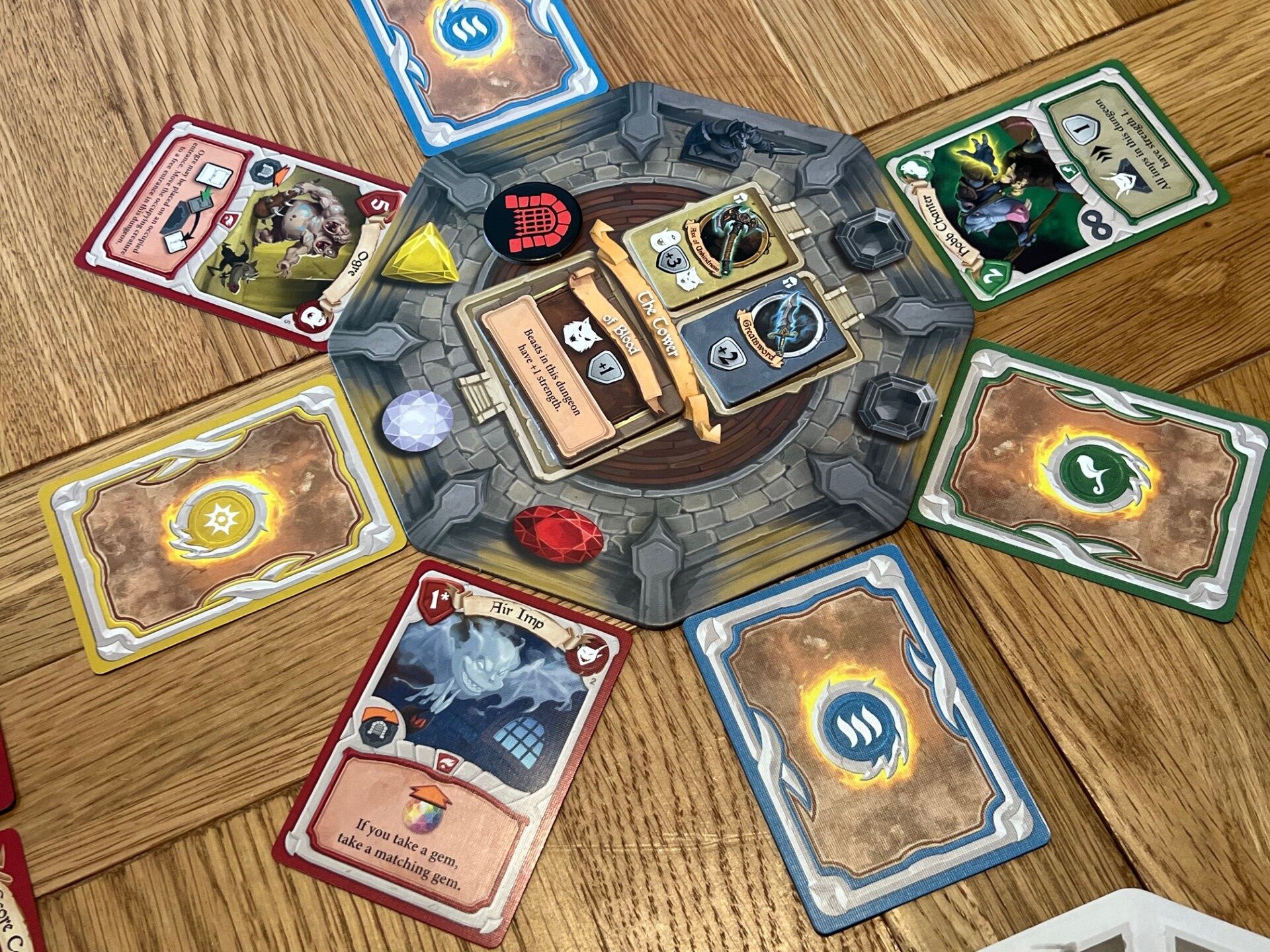
Cards have powerful effects on them, including having the ability to remove an opposing card completely, or to reduce the strength of particular cards. Putting a face down card that removes the adjacent card on the first space of a dungeon is very powerful — and that’s why those spaces often come with the downside of a cursed gem.
When a dungeon is full, any face down cards are turned face up and resolution from the first space (and going clockwise) is undertaken. Any cards removed during this resolution are discarded back to their owners (sometimes to hand and sometimes to the deck) and won’t add any strength to the resolution of that dungeon. Any effects they might have had (or were already having) are also lost.
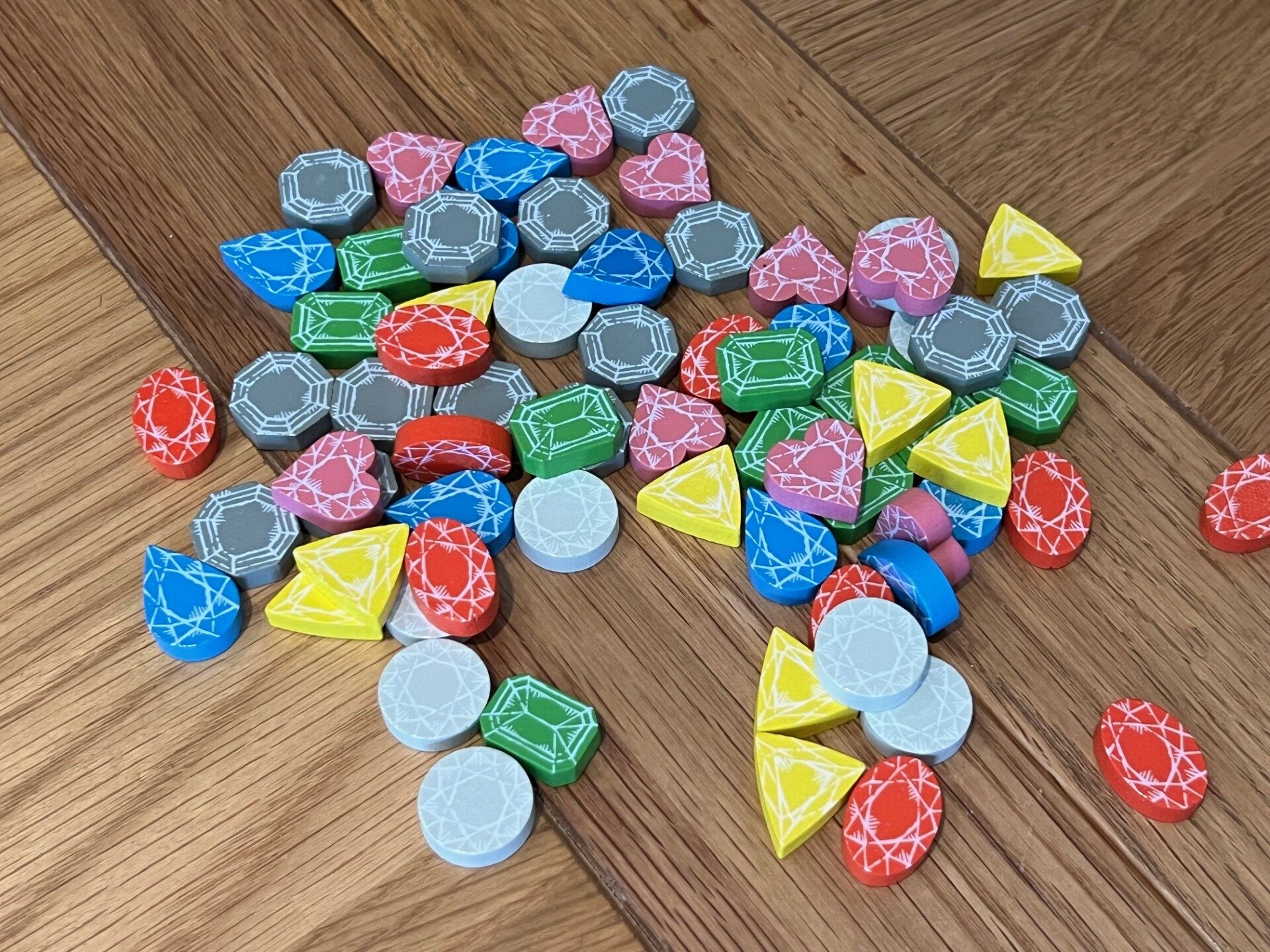
After this, any remaining creatures add their strength to a total for their owner, and each one will receive whatever treasure is printed on their space of the dungeon (cursed or not.) The player who has the most strength will then take the enchantment card from the dungeon (for one point) and either artifact, whilst the second placed player will just get the second artifact. Unless the game end is reached, the dungeon tile will flip and set up for further play.
At the end of the game, the winner of Wizards and Co will be whoever has the most points — and this is determined by the number of artifacts (and their type) and the number of different gems that players have, as well as one point per enchantment. Interestingly, the player(s) with the most cursed gems will lose three points, but must also then discard one of any other gem for each cursed gem they have — which can be quite punitive.
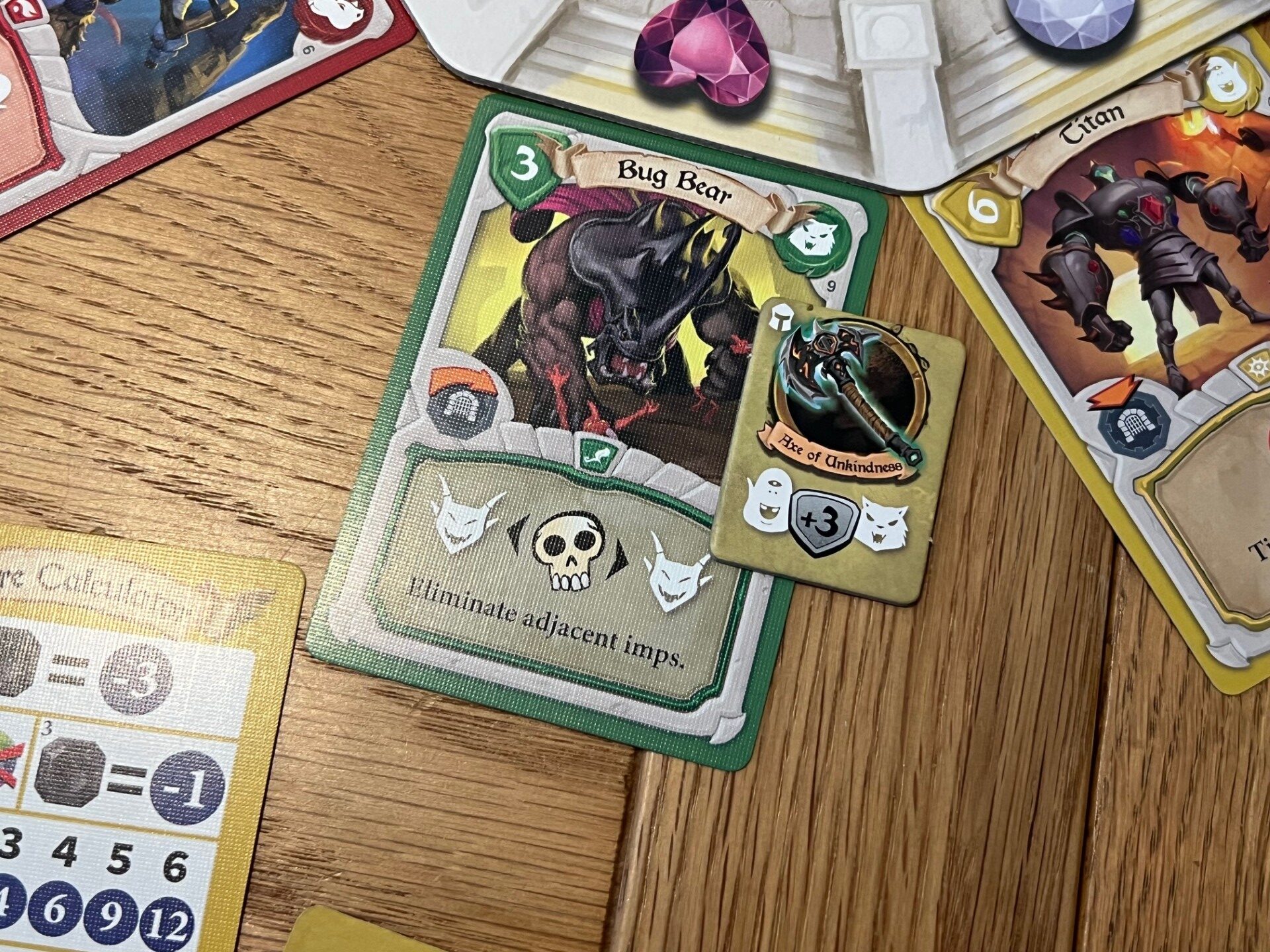
Wizards and Co is pretty unique, I think. The way that different cards interact is nothing new, but the dungeons are interesting and the way that cards are resolved around them leads to some very interesting moments and decisions. These decisions link to the number of cards drawn when cards are played – and a more powerful turn where you place two cards down will often lead to drawing none back in return.
Enchantments can definitely affect your thinking too, with some dungeons or the artifacts in them looking ideal, but the cards in your hand perhaps not playing well into the enchantment that is associated with that dungeon. On other occasions, you might find what you think will be the perfect card to slide in between two filled slots, in a way that might just change the game completely in your favour.
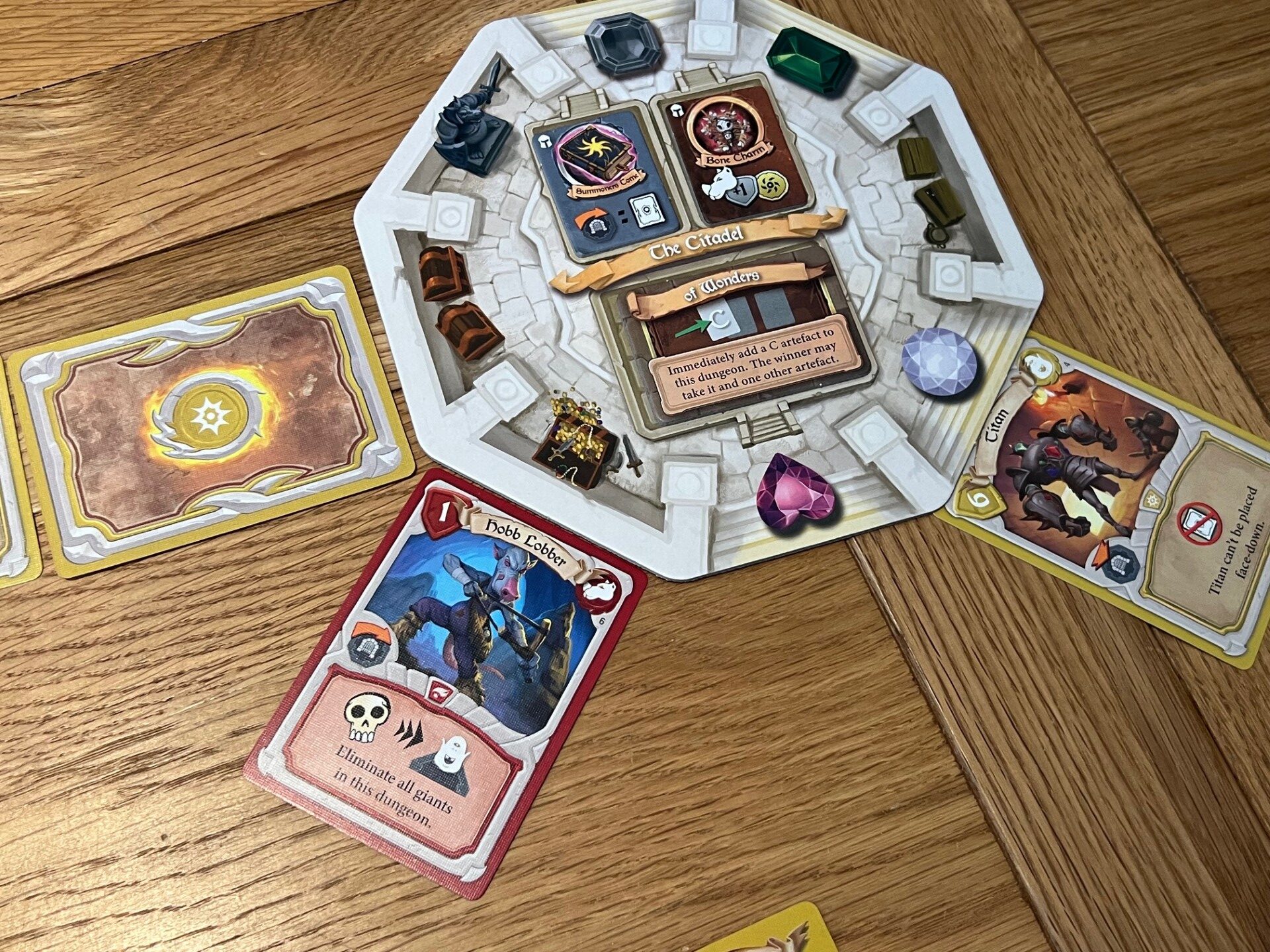
On this note, I did find at times that Wizards and Co has a bit too much going on for it all to come together cleanly. Sometimes for example, a dungeon might have several face down cards on it, and when they turn over and resolution begins, they might simply not affect each other at all. There can be big swings in sentiment at the table between battles that resolve with lots of worthwhile interaction, and battles that fizzle out a bit due to cards bringing little benefit besides their actual strength.
Artifacts do offer some interesting variation once you have them — with some adding strength to other cards, and others even allowing a player to summon unique creatures that are exclusive to them. These are quite nice, and again add quite a bit of variation to a game that feels like it always treads the line between “too random” and “just random enough.”
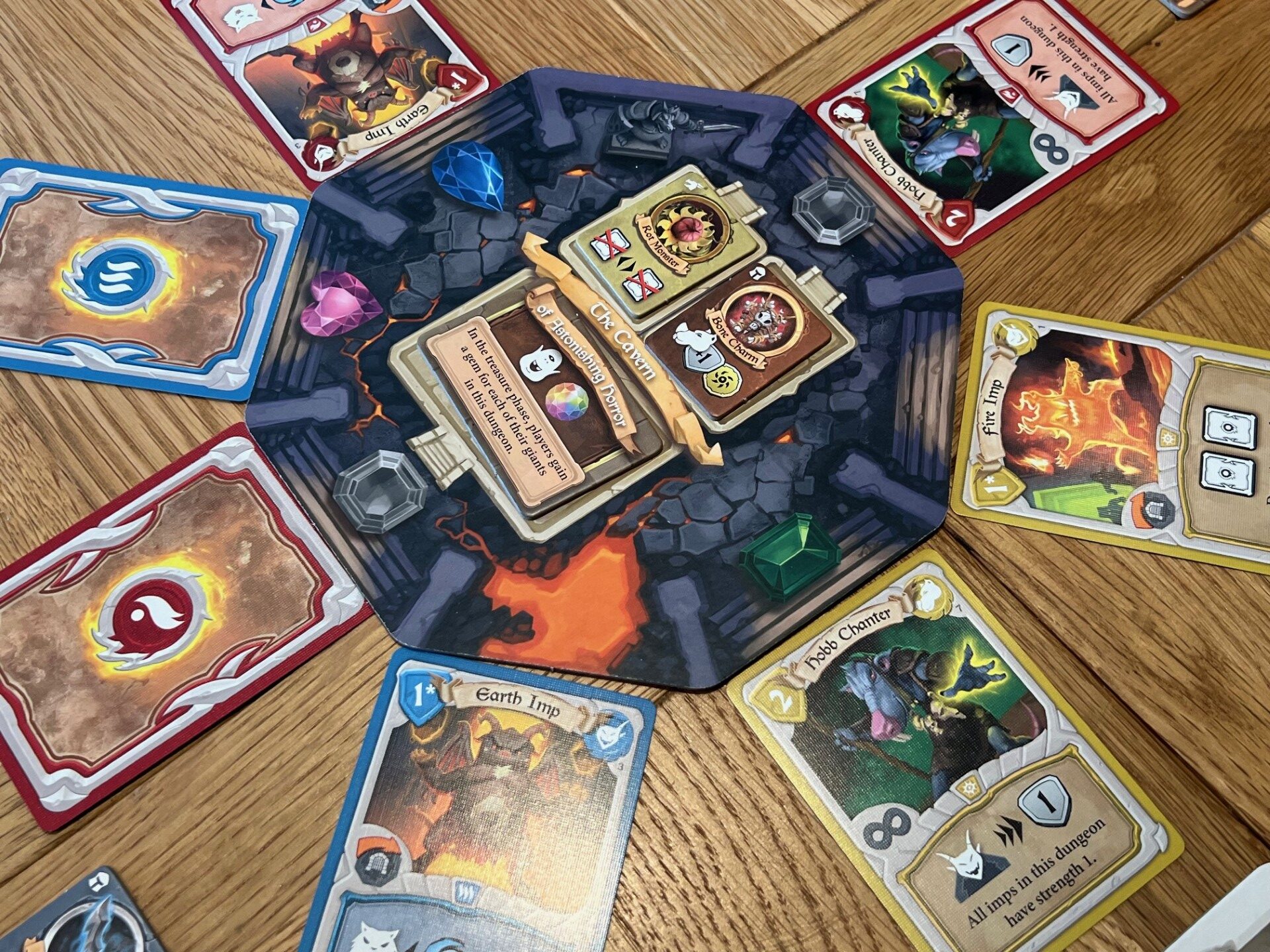
Wizards and Co isn’t perfect, but it’s a small box game that expands into a bigger experience than you might expect. It looks good on the table and has a clever design that is enjoyable across a broad age range, albeit with some of the fiddliness and potential for a bit of a downbeat experience at times. Overall, I’d always be happy to play it, and considering that it takes a lot of thought but not a lot of time, it’s a fun and worthwhile experience if you’ve enjoyed previous SInister Fish Games in the past.
You can find Wizards and Co for Pre-Order on their Kickstarter.
Comments are closed.